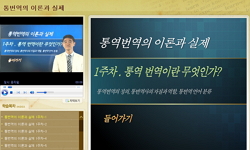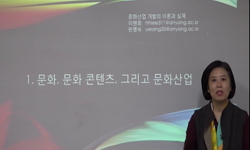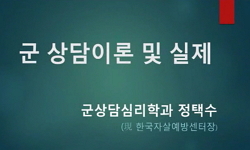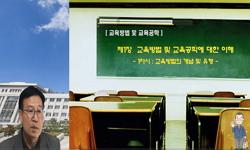‘잘 가르치는 일’로서 교육공학은 모종의 처방적인 활동임이 틀림없다. 이 점에서 교육공학은 일종의 도구적 성격을 갖는다. 하지만, 처방이 목적, 내용과 분리될 수 없다는 점은 교육공...
http://chineseinput.net/에서 pinyin(병음)방식으로 중국어를 변환할 수 있습니다.
변환된 중국어를 복사하여 사용하시면 됩니다.
- 中文 을 입력하시려면 zhongwen을 입력하시고 space를누르시면됩니다.
- 北京 을 입력하시려면 beijing을 입력하시고 space를 누르시면 됩니다.

Heidegger 존재론에 비추어 본 교육공학 재개념화: 처방의 의미를 중심으로 = Reconceptualization of Educational Technology in the Light of Heidegger’s Theory of Being: Focusing on Meaning of Prescription
한글로보기https://www.riss.kr/link?id=A105616542
- 저자
- 발행기관
- 학술지명
- 권호사항
-
발행연도
2018
-
작성언어
Korean
- 주제어
-
등재정보
KCI등재
-
자료형태
학술저널
- 발행기관 URL
-
수록면
649-678(30쪽)
-
KCI 피인용횟수
0
- DOI식별코드
- 제공처
- 소장기관
-
0
상세조회 -
0
다운로드
부가정보
국문 초록 (Abstract)
‘잘 가르치는 일’로서 교육공학은 모종의 처방적인 활동임이 틀림없다. 이 점에서 교육공학은 일종의 도구적 성격을 갖는다. 하지만, 처방이 목적, 내용과 분리될 수 없다는 점은 교육공학을 단순히 도구적 성격만으로 설명할 수 없음을 명확히 드러낸다. 이처럼 교육공학의 본질을 파악하기 위해서는 교육의 목적과 내용과 연계하여 처방의 의미를 규명해야 한다. 이에 본 연구는 교육공학의 현상 이면에 보이지 않는 본질을 드러내고자 존재 의미에 대해 탐색한 철학자인 Heidegger의 철학에 비추어 교육공학을 재개념화하였다. Heidegger 존재론에 비추어 본 교육공학은 존재자적 교육공학과 존재론적 교육공학으로 구분된다. 이때 존재자적 교육공학은 실제적 지식, 실용교육, 전향적 관점의 적극적 처방을 지향한다. 반면, 존재론적 교육공학은 이론적 지식, 인간교육, 후향적 관점의 소극적 처방을 지향한다. 그러나 두 가지 교육공학은 서로 혼동해서는 안 되지만, 그렇다고 분리되어 존재하는 것도 아니다. 실제 교육 활동에 있어서 교육공학의 두 가지 존재 양식은 모두 필요하며, 경우에 따라서 두 가지 존재 양식은 상호보완적으로 작용할 수 있다. 본 연구에서는 교육공학의 두 가지 존재 양식을 통합할 수 있는 모형을 제시하였다. 이것은 이론적 지식의 축적을 통해 자신의 안목을 넓히고, 대상에 대한 깊은 이해를 바탕으로 실제적 처방이 이루어질 때, 비로소 심층적 지식을 전수할 수 있다는 것을 시사한다.
다국어 초록 (Multilingual Abstract)
As a “well-teaching activity” educational technology is prescriptive, thus having a kind of instrumental meaning. However, the fact that prescription cannot be separated from educational aims and subject matter clearly reveals that educational tec...
As a “well-teaching activity” educational technology is prescriptive, thus having a kind of instrumental meaning. However, the fact that prescription cannot be separated from educational aims and subject matter clearly reveals that educational technology cannot be explained simply by its instrumental nature. In order to understand the essence of educational technology, it is necessary to identify the meaning of prescription in connection with the educational aims and subject matter. Therefore, this study re-conceptualized educational technology in the light of the philosophy of Heidegger, who has explored the meaning of being in order to determine the intrinsic value of educational technology. Educational technology in the light of Heidegger’s theory of being is divided into “ontic educational technology” and “ontological educational technology,” in accordance with the aspects of explanation and understanding of existence. “ontic educational technology” pursues practical knowledge, practical education, and positive prescription from the perspectives of prospective thinking. On the other hand, “ontological educational technology” pursues theoretical knowledge, humanity education, and negative prescription from the perspectives of retrospective thinking. However, although two aspects of educational technology are sharply contrasted, they do not exist separately. In actual educational activities, both aspects of educational technology are necessary and, in some cases, can complement each other. In this study, we present a model, which integrates these two different aspects of educational technology. This implies that the not-yet-manifested knowledge can be transferred only when practical prescriptions are made, based on the accumulation of theoretical knowledge from a teacher's own existential awakening and caring for the learners' being.
참고문헌 (Reference)
1 박승억, "후설 & 하이데거" 김영사 2007
2 Chalmers, A. F., "현대의 과학철학" 서광사 1985
3 고영준, "헤겔의 관점에서 본 도덕 발달의 원리" 한국도덕교육학회 29 (29): 147-178, 2017
4 유영만, "학문융합과 교육공학의 학문적 발전: 교육공학을 위하여 교육공학을 넘어서기" 한국교육공학회 31 (31): 655-686, 2015
5 김영래, "하이데거의 “휴머니즘에 관한 편지(Brief über den Humanismus)”에 대한 교육학적 성찰" 한국교육철학회 (38) : 35-63, 2009
6 엄태동, "하이데거와 교육" 교육과학사 2016
7 서용석, "하이데거에서의 존재론과 교육론" 한국도덕교육학회 25 (25): 57-86, 2013
8 이선일, "하이데거『존재와 시간』" 서울대학교 철학사상연구소 2 (2): 2003
9 소광희, "하이데거「존재와 시간」강의" 문예출판사 2003
10 류재훈, "하이데거 존재론에 비추어 본 전문성 의미 탐색" 한국성인교육학회 20 (20): 123-149, 2017
1 박승억, "후설 & 하이데거" 김영사 2007
2 Chalmers, A. F., "현대의 과학철학" 서광사 1985
3 고영준, "헤겔의 관점에서 본 도덕 발달의 원리" 한국도덕교육학회 29 (29): 147-178, 2017
4 유영만, "학문융합과 교육공학의 학문적 발전: 교육공학을 위하여 교육공학을 넘어서기" 한국교육공학회 31 (31): 655-686, 2015
5 김영래, "하이데거의 “휴머니즘에 관한 편지(Brief über den Humanismus)”에 대한 교육학적 성찰" 한국교육철학회 (38) : 35-63, 2009
6 엄태동, "하이데거와 교육" 교육과학사 2016
7 서용석, "하이데거에서의 존재론과 교육론" 한국도덕교육학회 25 (25): 57-86, 2013
8 이선일, "하이데거『존재와 시간』" 서울대학교 철학사상연구소 2 (2): 2003
9 소광희, "하이데거「존재와 시간」강의" 문예출판사 2003
10 류재훈, "하이데거 존재론에 비추어 본 전문성 의미 탐색" 한국성인교육학회 20 (20): 123-149, 2017
11 김승호, "통합교과 교수방법론" 한국초등교육학회 17 (17): 1-24, 2004
12 Manheimer, R., "키에르케고르의 교육이론" 교육과학사 2003
13 임병덕, "칸트와 키에르케고르 : 언어의 한계와 가능성" 한국도덕교육학회 16 (16): 29-50, 2004
14 정인성, "최신교수설계이론" 교육과학사 1992
15 김동규, "철학의 모비딕: 예술, 존재, 하이데거" 문학동네 2013
16 Heidegger, M., "철학에 기여" 새물결 2015
17 서용석, "진리와 교육: 하이데거 존재론의 관점" 한국교육철학학회 (49) : 77-97, 2010
18 이기상, "존재와 시간: 인간은 죽음을 향한 존재" 살림 2013
19 Heidegger, M., "존재와 시간" 까치글방 1998
20 유영만, "제4세대 HRD" 학지사 2009
21 이홍우, "인지학습 이론" 교육과학사 2015
22 Heidegger, M., "이정표1&2" 한길사 2005
23 Peters, R. S., "윤리학과 교육" 교육과학사 2004
24 Polanyi, M., "암묵적 영역" 박영사 2015
25 이홍우, "신수 교육과정이론" 교육과학사 2017
26 정재삼, "수행공학의 이해: 기업교육 리엔지니어링의 틀" 교육과학사 2000
27 윤석철, "삶의 정도" 위즈덤하우스 2011
28 허운나, "산업교육 요구분석" 배영사 2002
29 Bruner, J. S., "브루너 교육의 과정" 배영사 2007
30 Dewey, J., "민주주의와 교육" 교육과학사 2007
31 김형효, "마음혁명" 살림 2007
32 Heidegger, M., "동일성과 차이" 민음사 2000
33 Aristotle, "니코마코스 윤리학" 숲 2013
34 Aristotle, "니코마코스 윤리학" 풀빛 2005
35 문용경, "네오프래그머티즘에 기반한 과정적 실재로서의 전문성 축적과 형성에 관한 개념적 모형 개발" 한양대학교 대학원 2013
36 Heidegger, M., "기술과 전향" 서광사 1993
37 손소영, "교육인식론에 비추어 본 소극적 처방으로써의 수업체제설계의 개념적 모형 개발" 한양대학교 대학원 2010
38 한명희, "교육의 철학적 이해" 문음사 2005
39 박성익, "교육의 본질 구현을 위한 교육공학의 역할" 2014 (2014): 3-10, 2014
40 이홍우, "교육의 목적과 난점" 교육과학사 2016
41 이홍우, "교육의 개념" 문음사 2009
42 홍윤경, "교육목적으로서 ‘아레테’(arete)의 개념 연구" 한국교육철학학회 (44) : 173-190, 2009
43 서용석, "교육내용으로서의 과학과 사고: 하이데거의 교육이론" 한국교육사상학회 30 (30): 111-134, 2016
44 이홍우, "교육과정탐구" 박영사 2010
45 이홍우, "교육과정이론" 교육과학사 2003
46 김정래, "교육과 지식" 학지사 2017
47 유영만, "교육공학의 학문적 지평확대와 깊이의 심화(3탄): 교육공학을 위하여 교육공학을 넘어서기" 원미사 2008
48 권성호, "교육공학의 탐구" 양서원 2015
49 정재삼, "교육공학의 이론과 실제에 대한 논쟁 - 학문적 정체성, 간학문성, 소프트 및 하드 테크놀로지 활용 -" 교육과학연구소 34 (34): 167-192, 2003
50 박성익, "교육공학의 원리와 적용" 교육과학사 2012
51 양은주, "교육공학과 철학의 연계 필요성과 가능성" 16 (16): 213-236, 2000
52 박성익, "교육공학 탐구의 새 지평" 교육과학사 2001
53 Spector, J. M., "교육공학 : 통합적 접근과 학제적 관점" 교육과학사 2013
54 Januszewski, A., "교육공학 : 정의와 논평" 교육과학사 2009
55 조영태, "교과의 내면화 : 폴라니를 중심으로" 한국도덕교육학회 18 (18): 241-262, 2006
56 김용식, "과학․기술시대의 교육문제: Heidegger의 철학적 관점에서" 29 (29): 85-98, 1995
57 정범모, "격동기에 겪은 사상들" 서울대학교출판문화원 2014
58 Polanyi, M., "개인적 지식 : 후기 비판적 철학을 향하여" 아카넷 2001
59 Heidegger, M., "강연과 논문" 이학사 2008
60 Commission on Instructional Technology, "To improve learning: A report to the president and the congress of the United states" Goverment Printing Office 1970
61 Schön, D. A., "The reflective practitioner" Basic Books 1983
62 Ely, D. P., "The field of educational technology : A statement of definition" 17 (17): 36-43, 1972
63 Saettler, P., "The evolution of american educational technology" Libraries Unlimited 1990
64 Association for Educational Communications and Technology, "The definition of educational technology" Association for Educational Communications and Technology 1977
65 Ely, D. P., "The changing role of the audiovisual process: A definition and glossary of related terms" 11 (11): 1963
66 Oakeshott, M., "Rationalism in politics and other essays(Rationalism in politics)" Methuen 1962
67 Seels, B., "Instructional technology : The definition and domains of the field" ACET Press 1994
68 Heinich, R., "Instructional media and the new technologies of instruction" Prentice-Hall Inc 1996
동일학술지(권/호) 다른 논문
-
협력적 상호작용 집단의 사회연결망 중앙성이 집단 시너지와 학업성취에 미치는 영향
- 한국교육공학회
- 김선연 ( Sun-yun Kim )
- 2018
- KCI등재
-
플립러닝 환경에서 학업적 자기효능감, 과제가치, 학습참여도, 학업성취도, 학습만족도 간의 관계 분석
- 한국교육공학회
- 권구경 ( Ku Kyeong Kwon )
- 2018
- KCI등재
-
수업관찰 유형에 따른 수업전문성 요인 차이 분석: ICALT 수업분석 관찰도구 활용을 기반으로
- 한국교육공학회
- 장순선 ( Soonsun Jang )
- 2018
- KCI등재
-
복합적 과제에서 전체과제계열화를 적용한 CTA(Cognitive-Task Analysis)가 전문가의 지식추출에 미치는 영향
- 한국교육공학회
- 김남정 ( Namjung Kim )
- 2018
- KCI등재
분석정보
인용정보 인용지수 설명보기
학술지 이력
| 연월일 | 이력구분 | 이력상세 | 등재구분 |
|---|---|---|---|
| 2027 | 평가예정 | 재인증평가 신청대상 (재인증) | |
| 2021-01-01 | 평가 | 등재학술지 유지 (재인증) |  |
| 2018-01-01 | 평가 | 등재학술지 유지 (등재유지) |  |
| 2015-01-01 | 평가 | 등재학술지 유지 (등재유지) |  |
| 2011-01-01 | 평가 | 등재학술지 유지 (등재유지) |  |
| 2009-01-01 | 평가 | 등재학술지 유지 (등재유지) |  |
| 2007-01-01 | 평가 | 등재학술지 유지 (등재유지) |  |
| 2004-01-01 | 평가 | 등재학술지 선정 (등재후보2차) |  |
| 2003-01-01 | 평가 | 등재후보 1차 PASS (등재후보1차) |  |
| 2002-01-01 | 평가 | 등재후보 1차 FAIL (등재후보1차) |  |
| 1999-07-01 | 평가 | 등재후보학술지 선정 (신규평가) |  |
학술지 인용정보
| 기준연도 | WOS-KCI 통합IF(2년) | KCIF(2년) | KCIF(3년) |
|---|---|---|---|
| 2016 | 3.7 | 3.7 | 3.26 |
| KCIF(4년) | KCIF(5년) | 중심성지수(3년) | 즉시성지수 |
| 2.89 | 2.68 | 3.751 | 0.75 |





 KCI
KCI KISS
KISS







